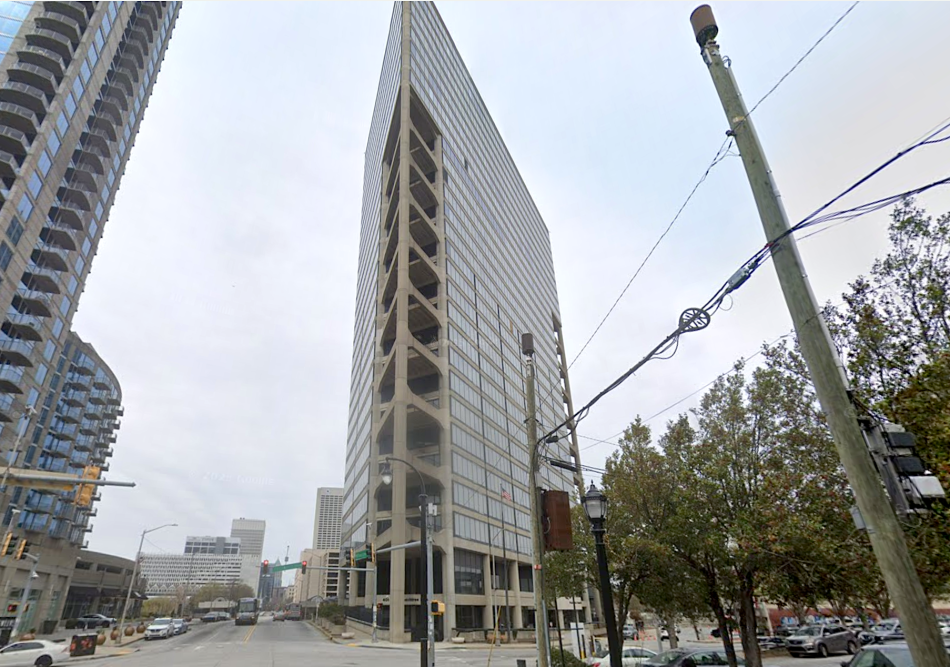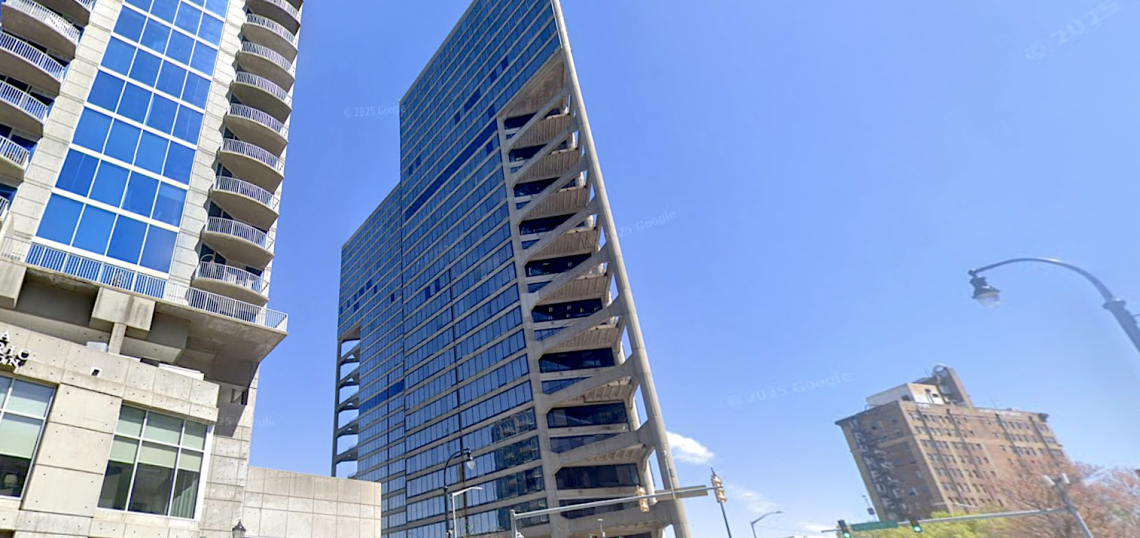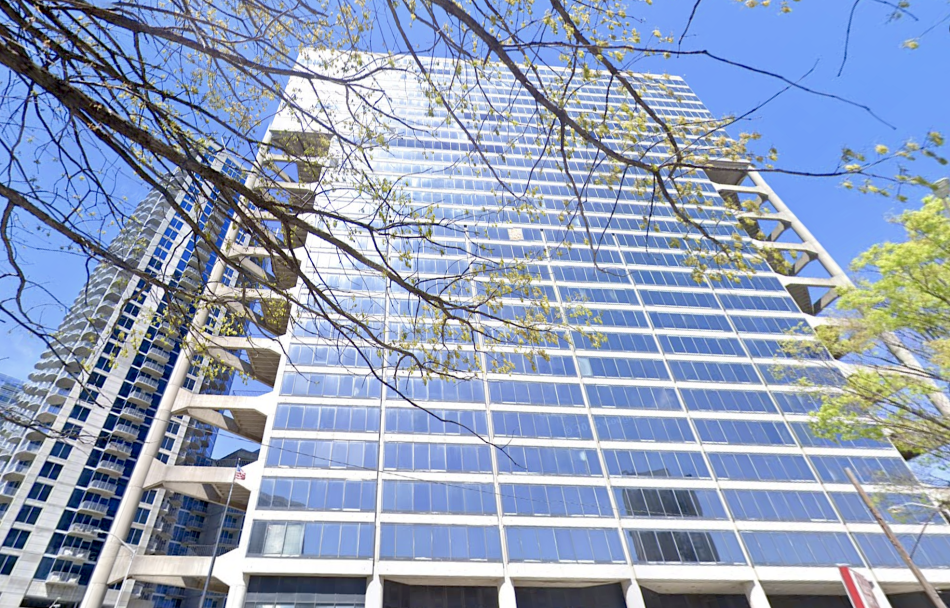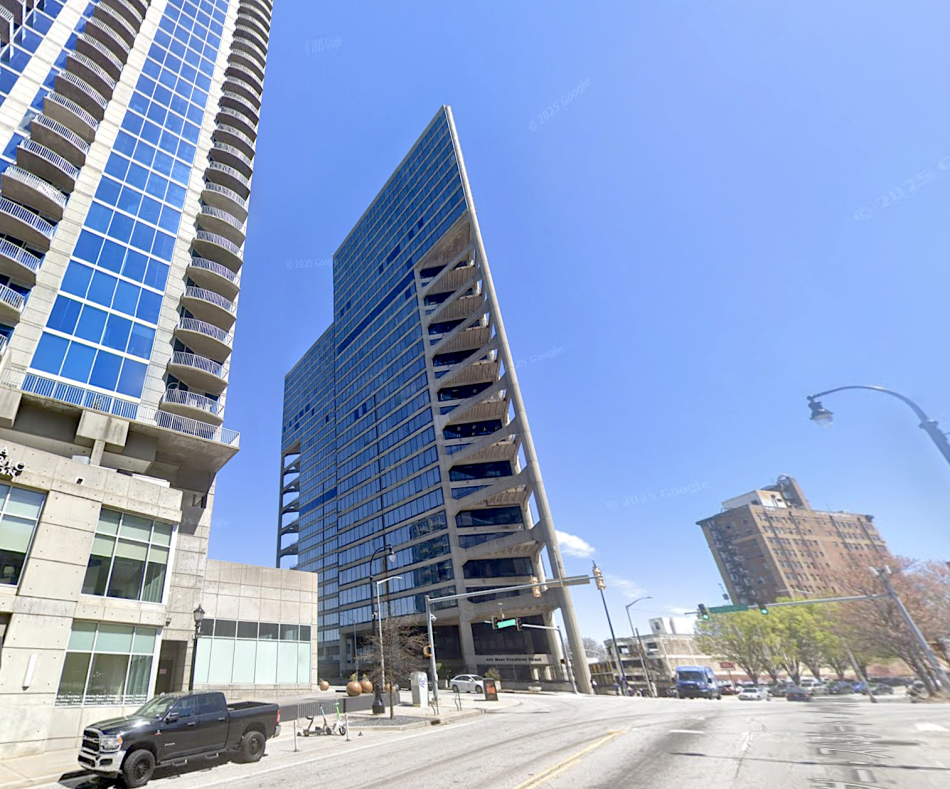The Peachtree Summit Federal Building, a downtown landmark that’s home to agencies such as the Internal Revenue Service, Atlanta Immigration Court, and Social Security Administration, could be on the market for sale soon.
And that could have repercussions for the neighborhood at large.
The 29-story, triangular building completed in 1975, located near the northern rim of downtown, has been selected for "accelerated disposal” by the U.S. General Services Administration. Peachtree Summit Federal Building was one of eight buildings across the country identified for disposition in March—and at nearly 800,000 square feet, the largest among them all.
The list of buildings on the chopping block grew to more than 40 federal properties as of May.
According to the official GSA website, these buildings were chosen based on their previous assessments of “deferred maintenance and operating cost, utilization, and the general availability of replacement space in the local market.”
Per GSA, Atlanta's tower is roughly 70 percent occupied today.
 The 401 W. Peachtree St. landmark, designed by noted Atlanta architect Joe Amisano (Lenox Square mall; Peachtree Center MARTA station), was the only one of three planned high-rises that came to fruition in the mid-1970s. Google Maps
The 401 W. Peachtree St. landmark, designed by noted Atlanta architect Joe Amisano (Lenox Square mall; Peachtree Center MARTA station), was the only one of three planned high-rises that came to fruition in the mid-1970s. Google Maps
The potential removal of these properties from the federal real estate portfolio will “reduce the burden on the American taxpayer while also delivering space that enables its agency customers to achieve their missions,” according to GSA's site.
Originally, the GSA released a disposal list in March of more than 440 buildings from across the U.S. That list included several prominent buildings in Atlanta, such as the Martin Luther King Federal Building, the IRS Services Center, the Sam Nunn Atlanta Federal Center, and others. According to the Associated Press, that list came weeks after the GSA Washington headquarters released a message to their regional offices to start terminating their leases nationwide, inciting confusion at the local branches.
The initial list of more than 440 buildings was rescinded within hours.
Now returned to its status as a viable building, the Sam Nunn Atlanta Federal Center—home to the Army Corps of Engineers, the Environmental Protection Agency, and other agencies—is being discussed as a potential relocation site for the Peachtree Summit agencies.
With the buildings located a mile away from each other, the transition would require more than 2,200 employees from Peachtree Summit to migrate farther south and increase the number of agencies within Sam Nunn from six to 10. Additionally, the move would relocate community access to the services offered at Peachtree Summit today; those include the IRS Taxpayer Assistance Center, as well as offices that process visa requests and asylum applications at the West Peachtree Street Immigration Court.
Despite the local ramifications of the potential move, the Public Buildings Reform Board has moved forward with recommending Peachtree Summit for disposal. The PBRB institute is responsible for pinpointing and recommending federal properties viable for sale, and then devising ways to streamline the disposal process.
The PBRB performed an independent analysis from the GSA and released their “second round” report in May, indicating the consolidation of the Atlanta buildings could save taxpayers more than $707 million. In the same report, regarding Peachtree Summit, the institute listed more than $255 million in needed building repairs and modernization as the primary reason for disposal. (Yes, a quarter-billion dollars).
The Office of Management and Budget approved these recommendations on May 22, allowing officials to push forward the process of offloading the building.
The true impact of Peachtree Summit's potential sale—and the relocation of thousands of workers across town—can only be speculated at this point, so downtown Atlanta will have to wait and see how this transition affects the community at large. Will the building have takers in a challenged market for older office properties? Could it be converted to housing at a reasonable cost? Would Atlantans want to live there, if so? Could shifting so many workers south be a boon for Underground Atlanta, Centennial Yards, and other huge investments in that area?
Only time will tell.
...
Follow us on social media:
Twitter / Facebook/and now: Instagram
• Downtown news, discussion (Urbanize Atlanta)








